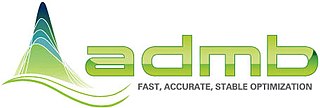Rmetrics Repository
The Rmetrics Repository is hosted by R-forge. The following developers (in alphabetical order) contribute or have contributed to the Rmetrics packages: Andrew Ellis, Christophe Dutang, David Lüthi, David Scott, Diethelm Würtz, Francesco Gochez, Juri Hinz, Marco Perlin, Martin Mächler, Maxime Debon, Petr Savicky, Philipp Erb, Pierre Chausse, Sergio Guirreri, Spencer Graves, and Yohan Chalabi.

Wolfram Mathematica is a software system with built-in libraries for several areas of technical computing that allow machine learning, statistics, symbolic computation, data manipulation, network analysis, time series analysis, NLP, optimization, plotting functions and various types of data, implementation of algorithms, creation of user interfaces, and interfacing with programs written in other programming languages. It was conceived by Stephen Wolfram, and is developed by Wolfram Research of Champaign, Illinois. The Wolfram Language is the programming language used in Mathematica. Mathematica 1.0 was released on June 23, 1988 in Champaign, Illinois and Santa Clara, California.
Computational archaeology describes computer-based analytical methods for the study of long-term human behaviour and behavioural evolution. As with other sub-disciplines that have prefixed 'computational' to their name, the term is reserved for methods that could not realistically be performed without the aid of a computer.

R is a programming language for statistical computing and data visualization. It has been adopted in the fields of data mining, bioinformatics, and data analysis.
Bioconductor is a free, open source and open development software project for the analysis and comprehension of genomic data generated by wet lab experiments in molecular biology.
The following tables compare general and technical information for a number of statistical analysis packages.

OpenEpi is a free, web-based, open source, operating system-independent series of programs for use in epidemiology, biostatistics, public health, and medicine, providing a number of epidemiologic and statistical tools for summary data. OpenEpi was developed in JavaScript and HTML, and can be run in modern web browsers. The program can be run from the OpenEpi website or downloaded and run without a web connection. The source code and documentation is downloadable and freely available for use by other investigators. OpenEpi has been reviewed, both by media organizations and in research journals.

ADMB or AD Model Builder is a free and open source software suite for non-linear statistical modeling. It was created by David Fournier and now being developed by the ADMB Project, a creation of the non-profit ADMB Foundation. The "AD" in AD Model Builder refers to the automatic differentiation capabilities that come from the AUTODIF Library, a C++ language extension also created by David Fournier, which implements reverse mode automatic differentiation. A related software package, ADMB-RE, provides additional support for modeling random effects.

Robert Clifford Gentleman is a Canadian statistician and bioinformatician who is currently the founding executive director of the Center for Computational Biomedicine at Harvard Medical School. He was previously the vice president of computational biology at 23andMe. Gentleman is recognized, along with Ross Ihaka, as one of the originators of the R programming language and the Bioconductor project.
Conda is an open-source, cross-platform, language-agnostic package manager and environment management system. It was originally developed to solve package management challenges faced by Python data scientists, and today is a popular package manager for Python and R. At first, Anaconda Python distribution was developed by Anaconda Inc.; later, it was spun out as a separate package, released under the BSD license. The Conda package and environment manager is included in all versions of Anaconda, Miniconda, and Anaconda Repository. Conda is a NumFOCUS affiliated project.
Dirk Eddelbuettel is a Canadian statistician, data scientist and researcher. He is the author of the open-source software package Rcpp, written in the R programming language, and has also written the textbook Seamless R and C++ Integration with Rcpp on the topic. He is co-founder of the R In Finance Conference. In addition, he has contributed to many packages in R as well as the Debian project. He is also a co-creator of the Rocker Project bringing Docker to R.
The EuroMatrixPlus is a project that ran from March 2009 to February 2012. EuroMatrixPlus succeeded a project called EuroMatrix and continued in further development and improvement of machine translation (MT) systems for languages of the European Union (EU).
Bibliometrix is a package for the R statistical programming language for quantitative research in scientometrics and bibliometrics.
Jennifer "Jenny" Bryan is a data scientist and an associate professor of statistics at the University of British Columbia where she developed the Master in Data Science Program. She is a statistician and software engineer at RStudio from Vancouver, Canada and is known for creating open source tools which connect R to Google Sheets and Google Drive.

R packages are extensions to the R statistical programming language. R packages contain code, data, and documentation in a standardised collection format that can be installed by users of R, typically via a centralised software repository such as CRAN. The large number of packages available for R, and the ease of installing and using them, has been cited as a major factor driving the widespread adoption of the language in data science.
The Open Knowledgebase of Interatomic Models (OpenKIM). is a cyberinfrastructure funded by the United States National Science Foundation (NSF) focused on improving the reliability and reproducibility of molecular and multi-scale simulations in computational materials science. It includes a repository of interatomic potentials that are exhaustively tested with user-developed integrity tests, tools to help select among existing potentials and develop new ones, extensive metadata on potentials and their developers, and standard integration methods for using interatomic potentials in major simulation codes. OpenKIM is a member of DataCite and provides unique DOIs (Digital object identifier) for all archived content on the site (fitted models, validation tests, etc.) in order to properly document and provide recognition to content contributors. OpenKIM is also an eXtreme Science and Engineering Discovery Environment (XSEDE) Science Gateway, and all content on openkim.org is available under open source licenses in support of the open science initiative.





